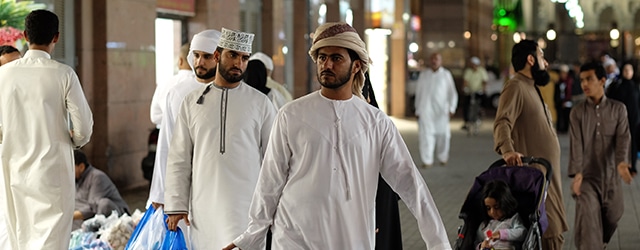Saudi Arabia’s big VAT hike balances falling oil revenue. But what about economic recovery?

Saudi Arabia has tripled its value-added tax (VAT) from 5% to 15%, effective July 1, as part of a series of austerity moves prompted by falling oil revenue. Last month, the government eliminated its monthly $267 cost-of-living allowances for public sector employees, pensioners and students.
“These are radical measures that underscore the gravity of the challenge facing the kingdom,” James Reeve, group chief economist at Riyadh-based Samba Financial Group, noted in May. “The measures send a message to the markets that the authorities are prepared to make tough choices to keep the deficit within bounds. The downside is that this is a further blow to the already-stricken retail sector.”
Raising taxes at such a difficult time, made worse by the Covid-19 pandemic, could deepen the kingdom’s economic downturn. The result is likely to be weaker consumption and lessened international competitiveness, some economists say.
Rather than follow the Saudi move, the United Arab Emirates is keeping its VAT rate at 5%. Qatar, Kuwait and Oman were all planning to introduce a 5% VAT next year, but may reconsider; the Gulf Cooperation Council’s common VAT agreement stipulates a standard rate of 5%, but there is no enforcement.
The austerity measures signal that Saudi Arabia “will rely on fiscal consolidation rather than a devaluation to make the adjustment to cheap oil,” according to Jason Tuvey, senior emerging markets economist at Capital Economics. “The measures mean that households may end up bearing a larger burden of austerity than they have done in the past,” Tuvey writes in a recent report. Until now, “the government has relied on cuts to capital spending and refrained from hitting the pockets of households for fear of igniting social unrest,” he adds.
Officials argue that they have no choice; Saudi Arabia has posted a budget deficit every year since the oil price collapse in 2014. It needs the added income as it struggles to reduce the public sector wage bill and promote the private sector.
Saudi Finance Minister Mohammed Al-Jadaan contends the VAT increase will not have much impact on government revenue this year, since consumer spending will be lower than normal anyway due to the pandemic lockdown. He expects it to help in future years, however.
Al-Jadaan said a nearly $48 billion drop in the kingdom’s foreign reserves in March and April was largely due to a $40 billion transfer to the Public Investment Fund (PIF), Saudi Arabia’s sovereign wealth fund, which has been buying stakes in depressed US and European companies and is working on a deal to take over the Premier League football club, Newcastle United.
The kingdom’s foreign exchange assets may be less liquid at the PIF than they would be at the central bank, however, Tuvey argues. “It will be increasingly difficult in the coming years to fully assess the sustainability of the dollar peg,” he writes.
Crown Prince Mohammed bin Salman, who chairs the PIF, is sharing the pain by taking an $8 billion postponement in spending on his favorite projects, including NEOM, the $500 billion smart city of the future and the centerpiece of the kingdom’s Vision 2030 program.
The 15% VAT will bring in significant new revenue once the economy recovers, the government reasons. While the rate boost is large, higher VAT rates in Europe range from 17% in Luxembourg to 27% in Hungary.
The VAT hike is also likely to have a limited pass-through effect on inflation. Capital Economics expects Saudi inflation to rise to around 5.5% in July and remain around that level for the rest of this year.



